The students of King Danylo University who took part in the offline training entitled Fact-Checking: Basic Principles conducted by the assistant of the Journalists’ Solidarity Center in Ivano-Frankivsk, Iryna Blazhenko, had the opportunity to enrich their knowledge of media literacy and familiarize themselves with the challenges of the media space in the conditions of war.
The journalist built the training based on the principles of fact-checking, which are related to media literacy, manipulation, clickbait, prejudice, and propaganda. Actual cases of media manipulation used in 2022 were considered.
They also talked about the work of fact-checking agencies in Ukraine and their solutions in the fight against media manipulation. We considered separately the example of the Bez Brekhni [No Lies] non-governmental organization, a separate vector whose work is interaction with regional mass media to mentor and popularize fact-checking at the local level. Journalists from the HLUZD publication, where the speaker works, were interested in this possibility. For several months they monitored the information field of the Prykarpattia area of the country to detect leaks and fakes.
The trainer gave recommendations to students that will help them be more media literate:
1. Consciously form an information space from public figures who can be trusted, official structures, and quality media resources.
2. Use the rule of three sources, which journalists should be guided by when constructing the material.
3. Check the source, as it can be people of dubious expertise or fabricated pages of official structures.
4. Monitor your emotional state. If the information causes us excessive admiration or aggression, this is a manifestation of manipulation in most cases.
“The work of a fact checker is work with open data and public information. It aims to find official confirmation of the information it checks. Here I want to emphasize that the fact checker’s work is not investigative, although it may look like one. However, there is a key difference between a journalistic investigation and fact-checking. If unofficial or insider information is used in the investigative genre, then this has no place in fact-checking. Fact-checking is based exclusively on official sources,” Iryna emphasized.
The journalist also offers a fact-checking algorithm that does not require specific tools for checking information:
– Pay particular attention to the reliability of facts and check their sources’ reliability.
– Check doubtful information in the most straightforward ways: using Google and Google Images if there are doubts about the photos.
– If questionable information has a probable source, then check whether that source is official or whether the official pages contain the information you are checking.
– Official appeals, requests for comments, and clarifications are also fact-checking tools.
To address the Ivano-Frankivsk Journalists’ Solidarity Center, please call 066 677 0726 (Viktoriya Plakhta, the coordinator of the Ivano-Frankivsk Center), Address: 25, Sichovykh Striltsiv.
Journalists’ Solidarity Centers is an initiative of the NUJU implemented with the support of the International and European Federations of Journalists, as well as UNESCO. The initiative is designed to help media representatives working in Ukraine during the war. The JSCs operate in Kyiv, Lviv, Ivano-Frankivsk, Chernivtsi, Zaporizhzhia, and Dnipro and provide journalists with organizational, technical, legal, psychological, and other types of assistance.
About UNESCO. UNESCO is the United Nations Educational, Scientific, and Cultural Organization. It contributes to peace and security by promoting international cooperation in education, sciences, culture, communication, and information. UNESCO promotes knowledge sharing and the free flow of ideas to accelerate mutual understanding. It is the coordinator of the UN Action Plan on the Safety of Journalists and the Issue of Impunity, which aims to create a free and safe environment for journalists and media workers, thus strengthening peace, democracy, and sustainable development worldwide. UNESCO is working closely with its partner organizations in Ukraine to provide support to journalists on the ground.
The designations employed and the presentation of material throughout this digest do not imply the expression of any opinion whatsoever on the part of UNESCO concerning the legal status of any country, territory, city or area or its authorities, or concerning the delimitation of its frontiers or boundaries.
The authors are responsible for the choice and the presentation of the facts contained in this digest and for the opinions expressed therein, which are not necessarily those of UNESCO and do not commit the organization.
Ivano-Frankivsk Journalists’ Solidarity Center

 THE NATIONAL UNION OF
JOURNALISTS OF UKRAINE
THE NATIONAL UNION OF
JOURNALISTS OF UKRAINE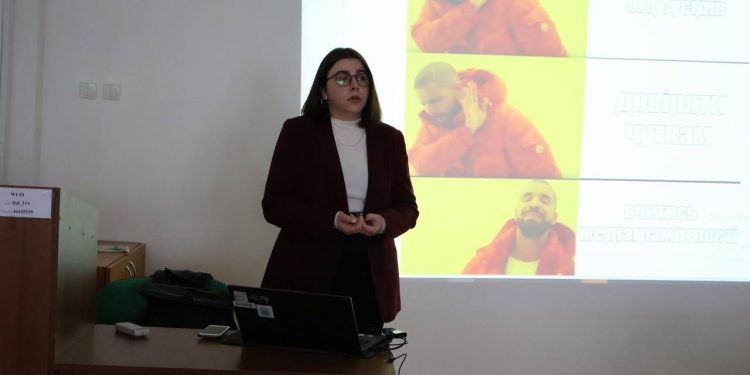
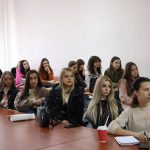
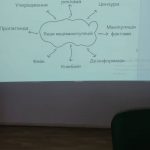
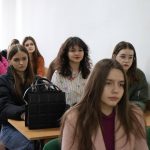
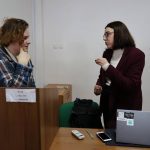
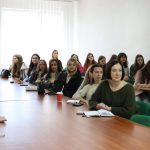
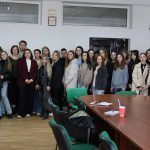
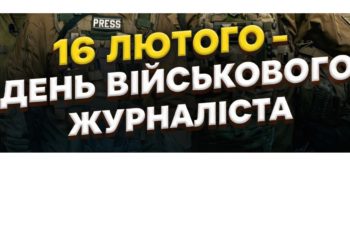















Discussion about this post